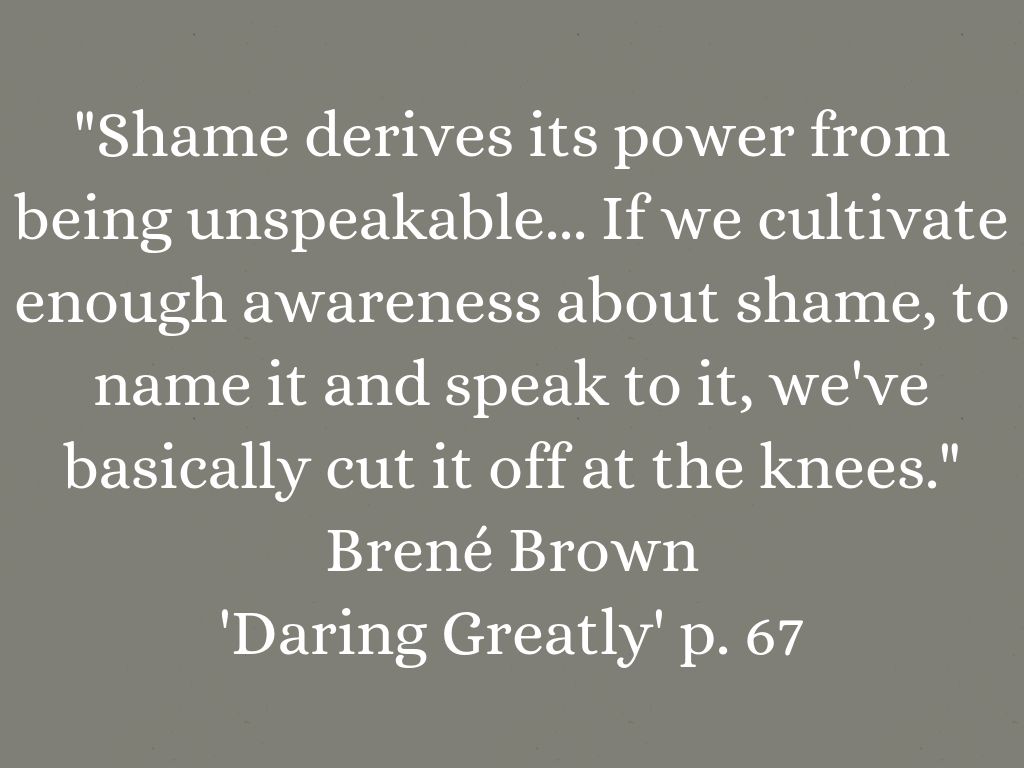
What is Guilt?
Here’s Brene Brown’s definition. “I believe that guilt is adaptive and helpful – it’s holding something we’ve done or failed to do up against our values and feeling psychological discomfort.”
So let’s think about this. Guilt is a tool for improvement, to be used for self-examination… to find ways to compare our behavior to our values and use the discomfort to do better in the future.
Contrast that with shame.
What Is Shame?
“I define shame as the intensely painful feeling or experience of believing that we are flawed and therefore unworthy of love and belonging – something we’ve experienced, done, or failed to do makes us unworthy of connection.” Dr. Brene Brown
There’s a big difference between psychological discomfort (guilt) and being unworthy of connection (shame).
Another definition, from The Purpose of Shame, “shame is the feeling that there is something basically wrong with you. Whereas the feeling of guilt is about DOING something wrong, shame is about BEING wrong at the core.
Can’t I Just Ignore It?
I am largely unaware when I am ashamed. It’s so scary a feeling for me that I block it. As I’ve worked to become aware of it, I can see how shame was ‘installed’ and then, since I didn’t recognize or name it, it just moved in and stayed.
Harboring guilt or shame isn’t productive. But understanding the difference and healing either, IS definitely worthwhile. There’s a saying, we’re only as sick as our secrets… and I believe that both shame and guilt flourish in the face of silence.
What To Do
I know there’s therapy and books and all kinds of good stuff to help. I say, use anything and everything that helps you.
1. Mostly I want to encourage you (and myself) to talk about things with someone you trust. This person may be hard to find, but it’s worth it. I say this with one important stipulation. The more shameful you feel, the harder it will be to trust someone with your secrets. So trust but verify. By that I mean, tell this person something minor. See how you feel after you tell them. Do you still feel safe? Did they listen to you or did they try to ‘fix’ it. Are they willing to allow you to just talk without giving advice? Test them. You’re worth it.
2. Listen to Brene Brown’s TED talk, “Listening to Shame.” (She has another TED talk, “The Power of Vulnerability.”)
3. Be good to yourself. I am so much easier on others than I am on myself. I am learning how to be gentle, look out for myself. Eat better, sleep a bit more, take a walk, enjoy the outdoors, laugh more, avoid toxic people and minimize comparing myself to others. I’m healing and I hope you are too.
Image credit: Haiku deck


What do you think?